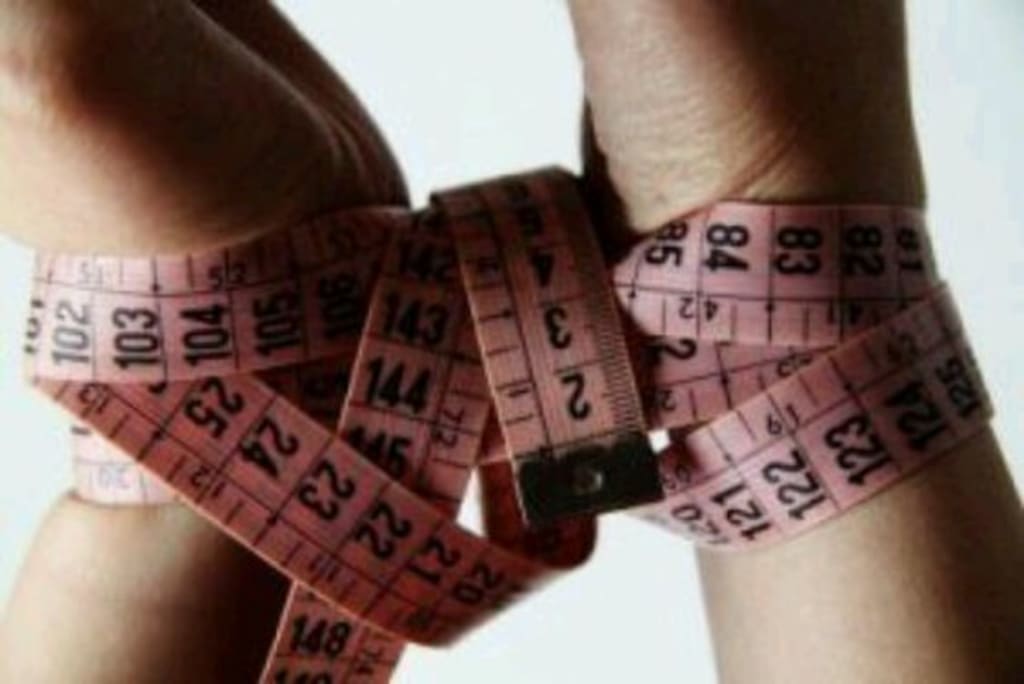The Problem with Diet Culture
And how it's changing our kids.

This is not medical advice. All opinions in this article are based on personal experience and independent research. If you have any concerns about you or someone you know, please seek the appropriate supports.
The invasion of diet culture in society over the past 20 years has been shocking. From fad diets, to "lifestyle programs," to pro-eating disorder movements, the amount of self-hatred surrounding body image is unreal. This self-hatred is starting at a younger and younger age ,and impacting one of the most emotionally vulnerable age groups: our youth. Whether you believe that social media, idealized role models, or unrealistic beauty standards are to blame, one thing is for sure; the effect it is having on young people is toxic.
Encouraging or starting kids on diets is extremely harmful to both their minds and bodies. Dieting in youth can cause long lasting psychological effects such as low self-esteem, depression, anxiety, eating disorders, and more. If for health reasons you are concerned about your child's weight, shape, or size, it is not appropriate to tell them they need to change, there is something wrong with them, or that they are not "good enough" the way they are. These messages are extremely damaging to a child's self-esteem and self-worth. Even if these comments are not made outright, the implication of said messages is also damaging. If there is a concern, the best thing to do is to get involved, start going out as a family and playing sports, going for a walk or bike ride. Start going to the park, and start involving your kids in making meals. These are subtle and effective ways to develop and maintain a healthy and active lifestyle for the entire family. When there is a concern, remember that kids are always growing and changing, the message to them should always be one of love, acceptance, and caring no matter what.
It is well known amongst the dietician community that restricting one's food intake is actually counter-productive to the goal of weight loss. Extreme restriction of food and calories consumed can cause the body to go into starvation mode. This means the body starts to slowly consume muscles and tissues, the body starts to metabolize food slower in an effort to preserve the nutrients, and nutrients consumed are used to run only essential organs and systems in the body. When the body is in starvation mode, binges are likely to occur due to extreme hunger. Shifts in mood are also common due to the lack of energy. Binges can lead to compensatory behaviors including purging (self-induced vomiting), or the excessive use of laxatives, diuretics, or exercise.
Many people are quick to point the finger at social media for its effect on body image and body perception. While it is true that people often portray an idealized self-image on social media there has been a recent insurgence from the body positive community. Promoting body acceptance and body positivity is becoming a more prominent crusade amongst social media. Celebrities and prominent public figures have begun to show more realistic images of themselves and their bodies, many sharing their experiences with eating disorders and self-criticism. This recent movement is promoting beauty at every age, race, size, and shape. This is an extremely important message for young people to see and hear, it is especially impactful when it is coming from role models on social media. A list of prominent public figures that have shared their struggles with disordered eating can be found below.
Healing from exposure to diet culture and disordered eating can be difficult. Unlearning that behavior can take time. If you or someone you know has or is currently struggling with an eating disorder, there are community resources available. A dietician with knowledge of eating disorders and without a weight-bias can be very helpful for recovery. Involving the whole family in recovery is also a great place to start, eliminate all diet behavior and previous negative food rules. This can be daunting, but healing is possible. A list of international, US, and Candian resources is below.
Fad diets like low-carb and keto are not the solution. The first sign of a bad diet is the requirement to cut out entire food groups. Beauty and health come in all different shapes and sizes. There is no one right way to look, or any one size fits all approach to a healthy lifestyle. Everyone is different, and our differences are what really make us beautiful.
Celebrities and Public Figures who have shared their stories:
Jameela Jamil: The Good Place and BBC Radio 1
Jennette McCurdy: iCarly and Sam and Cat.
Tyler Oakley: Youtuber/ Social Media Star and The Amazing Race
Zayn Malik, Russell Brand, Demi Lovato, and More:
International Resources:
The Centre for Clinical Intervention(worksheets and handouts with a wide range of topics)
U.S Resources:
National Eating Disorder Association (information, a crisis helpline, and text chat)
Canadian Resources:
National Eating Disorder Information Centre (information, and helpline)
Hopewell(Information, services, mentor programs, and community outreach)
About the Creator
the.unstable.sibling
Sharing stories to reduce stigma and promote recovery.






Comments
There are no comments for this story
Be the first to respond and start the conversation.